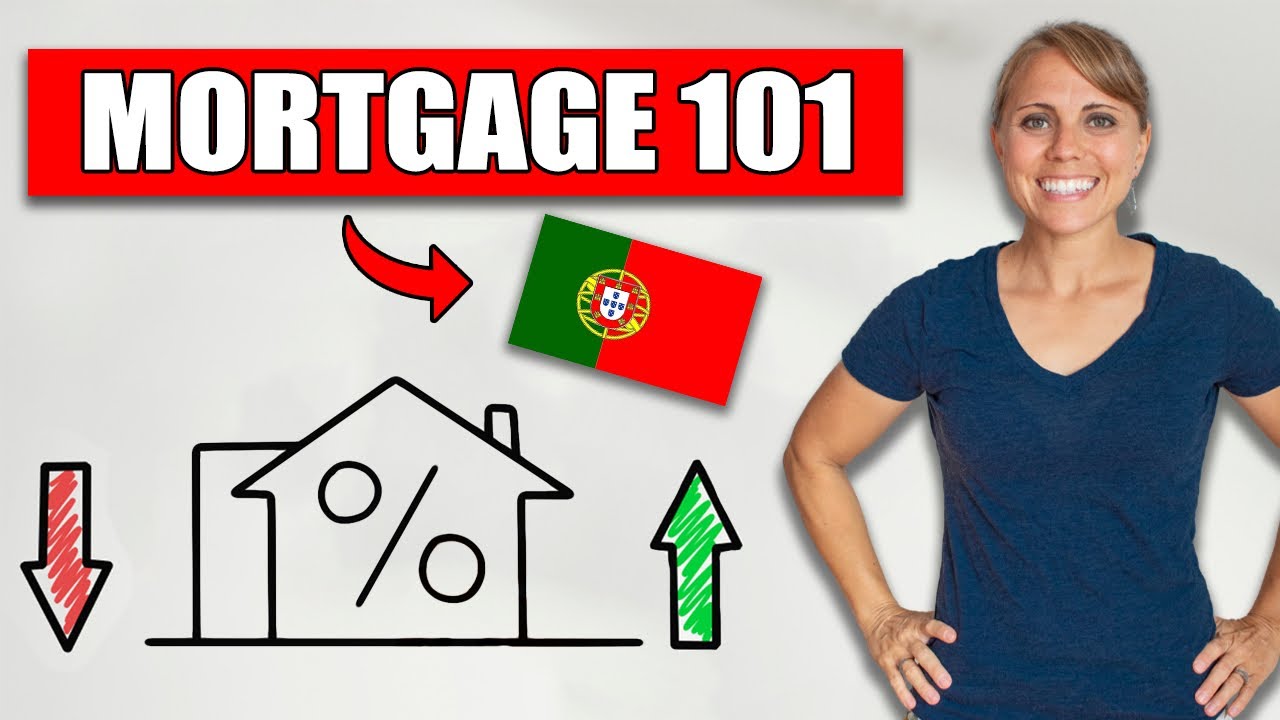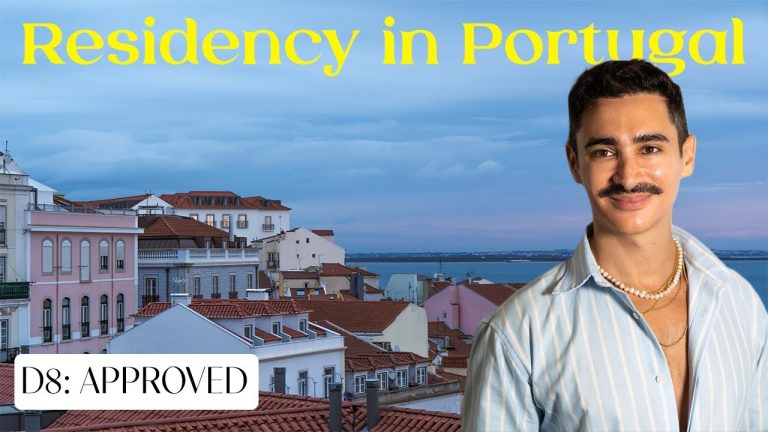Mortgages In Portugal
Welcome to the wonderful world of Portugal – a country with breathtaking landscapes, rich history, and a vibrant culture. As a real estate agent, I have had the pleasure of working with international clients who have fallen in love with Portugal and its charm. Whether it’s the sunny beaches of the Algarve, the historic districts of Lisbon or the lush vineyards of the Douro Valley, there’s no denying that Portugal has become a top destination for investment and relocation.
But with all the excitement of moving to a new country, comes the daunting task of navigating complex bureaucracy and financial systems. If you’re considering purchasing a property in Portugal, one of the biggest questions you may have is how to finance it. And that’s where mortgages come in.
As a seasoned real estate agent in Portugal, I have helped numerous clients secure the right mortgage to fit their needs. From first-time buyers to seasoned investors, I have seen it all. My personal experiences have given me a deep understanding of the Portuguese mortgage market and its intricacies.
In this guide, I’ll be sharing my expertise and personal insights on mortgages in Portugal. From the different types of mortgages available to the application process and legal requirements, I’ll provide you with a comprehensive overview of what you need to know to make an informed decision. So, sit back, relax, and let’s dive into the world of mortgages in Portugal.
Can you get a mortgage in Portugal as a foreigner?
Buying a property in Portugal is an excellent investment opportunity, and foreigners can get a mortgage to finance their property purchase. However, obtaining a mortgage as a foreigner in Portugal can be a complicated process, and you need to understand the requirements and restrictions before applying for a loan.
What are the requirements for getting a mortgage as a foreigner in Portugal?
The requirements for getting a mortgage in Portugal as a foreigner depend on several factors, including your residency status and creditworthiness. Here are some of the essential requirements:
- Valid passport and visa
- Proof of income and employment
- Good credit score and history
- Proof of funds for the deposit and associated costs
What are the restrictions for getting a mortgage as a foreigner in Portugal?
The Portuguese government has imposed some restrictions on foreign buyers to prevent speculation and maintain the stability of the property market. Here are some of the main restrictions:
- The maximum loan-to-value ratio (LTV) is 80% for non-residents and 90% for residents.
- The maximum loan term is 30 years.
- The property must be located in Portugal.
- The property must not be for commercial purposes.
Practical tips for getting a mortgage as a foreigner in Portugal
If you are planning to get a mortgage as a foreigner in Portugal, here are some tips to help you navigate the process:
- Work with an experienced mortgage broker who understands the requirements and restrictions for foreigners.
- Be prepared to provide extensive documentation to prove your income, employment, and creditworthiness.
- Shop around for different mortgage lenders to compare rates and terms.
- Consider getting a pre-approval letter to show sellers that you are a serious buyer with financing in place.
Can US citizens get a mortgage in Portugal?
Are you a US citizen considering purchasing property in Portugal? If so, you may be wondering if it’s possible to obtain a mortgage in the country. The good news is that, yes, it is possible for US citizens to get a mortgage in Portugal.
Understanding the Process
The first step in obtaining a mortgage in Portugal as a US citizen is to find a reputable bank or mortgage broker. It’s important to do your research and compare rates and terms from different lenders to ensure you’re getting the best deal possible. You may also want to consider working with a local real estate agent who can recommend lenders and help you navigate the process.
Once you have found a lender, you will need to provide documentation to prove your income, assets, and creditworthiness. This may include tax returns, bank statements, and credit reports. The lender will also require a valuation of the property you are purchasing.
Considerations for US Citizens
It’s important to note that as a US citizen, you may be subject to certain tax implications when purchasing property in Portugal. You may be required to file taxes in both Portugal and the United States, and there may be restrictions on how you can use the property.
Additionally, it’s important to consider the exchange rate between the US dollar and the euro. Fluctuations in the exchange rate can impact the amount you pay for your mortgage, so it’s important to factor this into your budget and long-term financial planning.
Personal Experience and Tips
As a real estate agent who has worked with many US citizens looking to purchase property in Portugal, I’ve seen firsthand the challenges and opportunities of obtaining a mortgage in the country. One tip I always give my clients is to start the process early and be prepared to provide all necessary documentation.
It’s also important to work with a lender who has experience working with US citizens and can provide guidance on tax implications and other financial considerations. And of course, working with a reputable real estate agent who is familiar with the local market can help ensure a smooth and successful transaction.
What kind of mortgages are available in Portugal?
If you’re considering buying property in Portugal, whether as a resident or non-resident, you may need to secure a mortgage to finance your purchase. Fortunately, Portugal offers a range of mortgage options to suit a variety of needs and circumstances. Below, we’ll explore the most popular types of mortgages available in Portugal, along with their features and eligibility requirements.
Variable-rate mortgages
A variable-rate mortgage is a type of mortgage in which the interest rate can fluctuate over time, typically in line with changes in the Euribor rate (the rate at which Eurozone banks lend to one another). This means that your monthly payments may rise or fall depending on the movements of the market. While this can be risky, variable-rate mortgages often have lower initial interest rates than fixed-rate mortgages, making them an attractive choice for those looking to minimize their monthly repayments.
Fixed-rate mortgages
A fixed-rate mortgage is a mortgage in which the interest rate remains the same for the duration of the mortgage term (usually between 5 and 30 years). This means that your monthly payments will remain consistent, giving you greater certainty and predictability when it comes to budgeting. However, fixed-rate mortgages often have higher initial interest rates than variable-rate mortgages, so you’ll need to weigh up the pros and cons carefully.
Interest-only mortgages
An interest-only mortgage is a mortgage in which you only pay the interest on the loan each month, without paying down the principal. This can be a good option for those looking to keep their monthly payments low while they wait for their property to appreciate in value. However, interest-only mortgages are riskier than other types of mortgages, as you’ll need to pay off the principal amount in full at the end of the mortgage term.
Non-resident mortgages
If you’re a non-resident looking to buy property in Portugal, you may be eligible for a non-resident mortgage. These mortgages typically have higher interest rates and stricter eligibility criteria than resident mortgages, but they can be a good choice for those looking to invest in Portuguese real estate without becoming permanent residents. To be eligible for a non-resident mortgage, you’ll usually need to provide proof of income, residency, and creditworthiness.
Resident mortgages
If you’re a resident of Portugal, you may be eligible for a resident mortgage. These mortgages typically have lower interest rates and more relaxed eligibility requirements than non-resident mortgages, making them a popular choice for those looking to buy property in Portugal as their primary residence. To be eligible for a resident mortgage, you’ll need to provide proof of residency and creditworthiness, as well as satisfy the lender’s affordability criteria.
How much can you borrow for a mortgage in Portugal?
Portugal has become a popular destination for individuals considering citizenship and residency by investment options around the world, current expats, and investors. One of the most common questions that arise when considering purchasing a property in Portugal is how much can you borrow for a mortgage.
Mortgage Lending Criteria in Portugal
The amount you can borrow for a mortgage in Portugal is determined by a number of factors, including your income, employment status, credit history, and the value of the property you wish to purchase.
Typically, lenders in Portugal will offer a maximum loan-to-value (LTV) ratio of 80%. This means that you will need to provide a deposit of at least 20% of the property value. However, there are some lenders who may offer higher LTV ratios, particularly if you have a strong financial profile.
In addition to the deposit, you will also need to cover the costs of purchasing the property, including legal fees, mortgage arrangement fees, and property transfer taxes. These costs can vary depending on the value of the property, but typically range between 5% and 10% of the purchase price.
Calculating Your Mortgage Affordability
Before you start looking for properties to purchase, it’s important to understand how much you can afford to borrow for a mortgage in Portugal.
One useful tool is a mortgage affordability calculator, which takes into account your income, expenses, and existing debts to calculate the maximum amount you can borrow for a mortgage.
It’s important to note that lenders in Portugal will also assess your ability to pay back the mortgage, based on your income and existing debts. They may also take into account any rental income you expect to receive from the property.
Working with a Mortgage Broker
If you’re unsure about the mortgage lending criteria in Portugal, or if you’re having trouble securing a mortgage, it may be helpful to work with a mortgage broker.
A mortgage broker can help you navigate the local property market, provide you with advice on the best mortgage options available to you, and negotiate with lenders on your behalf.
Obtaining a Portuguese NIF is a crucial step for anyone seeking to invest or establish themselves in Portugal. It is essential to understand the different programs and requirements, and to seek advice from a reputable agent or lawyer. With a deep understanding of the local bureaucracy, immigration processes, and investment opportunities, Portugal offers a unique blend of lifestyle, affordability, and potential returns on investment. As a real estate agent, I have witnessed firsthand the growth and potential of the Portuguese real estate sector, and I am confident that the country will continue to attract international investors and residents for years to come. So, if you are looking to relocate, invest, or simply explore new opportunities, Portugal is undoubtedly a place to consider.
Other Real Estate Investment related articles
- Algarve Real Estate Ocean View
- Best Neighbourhoods In Porto
- Best Places To Live In Portugal
- Best Places To Live In Portugal
- Buy To Let Mortgage Portugal
- Buy To Let Portugal
- Buying Property In Lisbon
- Buying Property In Portugal
- Cheap Houses For Sale In Portugal
- D7 Portugal
- D8 Digital Nomad Portugal
- Gay Areas Lisbon
- International Schools In Portugal
- Invest In Portugal
- Invest In Portugal
- Jobs In Portugal
- Living In Lisbon
- Low Density Areas In Portugal
- Mortgage Rate Portugal
- Nif Portugal
- Palaces For Sale In Portugal
- Portugal Luxury Real Estate
- Portugal Mortgage Rates
- Portugal Properties Under 50K
- Portugal Real Estate
- Portugal Real Estate Investment
- Portugal Silver Coast
- Portugal Silver Coast Real Estate
- Portugal Waterfront Real Estate
- Real Estate Investment Algarve
- Real Estate Investment Cascais
- Real Estate Investment Lisbon
- Real Estate Investment Porto
- Setubal Portugal Real Estate
- Vacation Homes Portugal
Originally posted 2023-07-07 09:28:25.






